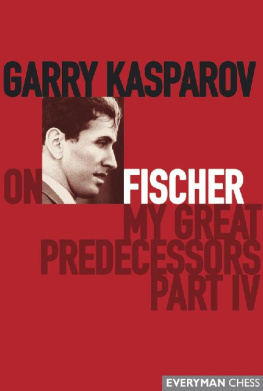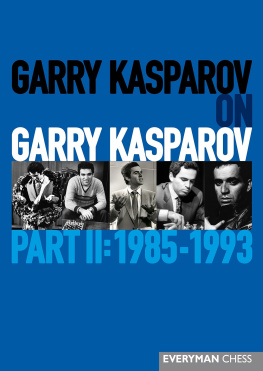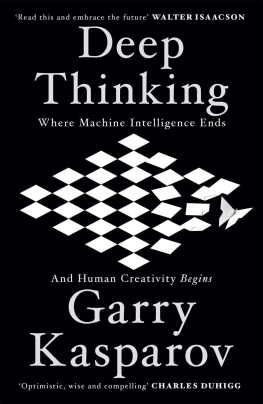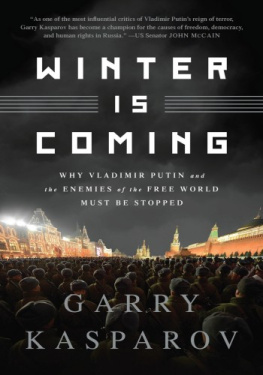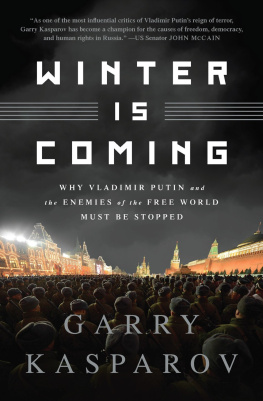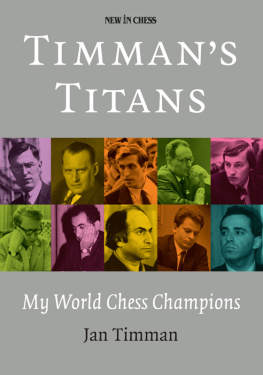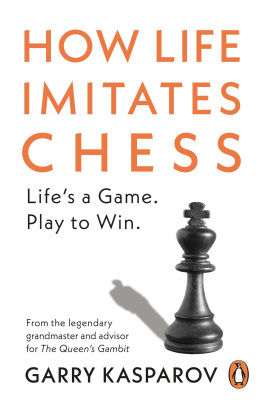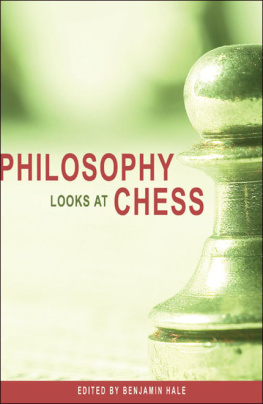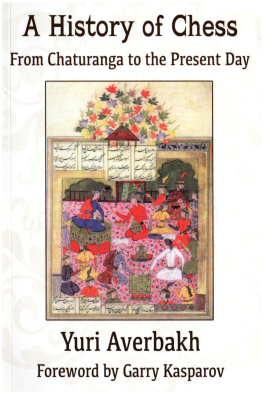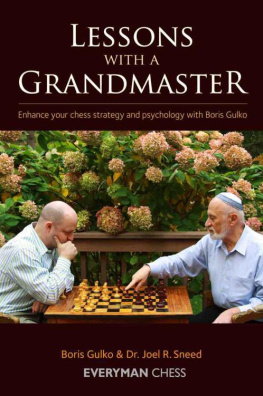
HOW LIFE IMITATES CHESS

MAKING THE RIGHT MOVES,
FROM THE BOARD TO THE BOARDROOM
GARRY KASPAROV
with Mig Greengard
BLOOMSBURY
To my mother, for a lifetime of inspiration and support.
CONTENTS
On October 11, 2007, I gave a presentation at the World Business Forum at Radio City Music Hall in New York City. I have given many talks on strategy and peak performance in recent years, but this one was special. First, there was the undeniable effect of the place and company. I have played world championship chess matches in many of the worlds great venues, from the Hall of Columns in Moscow to the Savoy Theatre in London to the top of the World Trade Center. Addressing an audience of thousands from the stage of Radio City was still a unique experience, especially considering my fellow speakers at the event included Jack Welch, Alan Greenspan, Michael Eisner, and Kofi Annan, among other luminaries.
It was also special because it was one of the few opportunities I have had to speak to an American audience. I have always been much more well-known in Europe, where chess and chess players are traditionally accorded far more attention than in the U.S., despite the world triumphs of Americans Paul Morphy in the nineteenth century and Bobby Fischer in the twentieth. The U.S. has long been a leader in business thought, and I was enthusiastic about speaking to a challenging, critical audience.
My forty-minute lecture included several topics present in this book, including staying aggressive to gain the attackers advantage and avoiding complacency. There were also several segments on politics that covered the strategy behind the war on terror, Iraq, global human rights, and, finally, our battle for democracy in Russia. I wasnt sure how such sensitive and topical material would be received, so I was relieved and gratified to receive a standing ovation when I finished. It was enough to make me wonder if the famous Rockettes had come out onto the stage behind me!
Afterward there was a Q&A session. This book, which had just been released in the U.S., was the topic of the first question from the moderator. So, Mr. Kasparov, how does life imitate chess? I did not hesitate to answer, It doesnt! This got a round of laughter, but I was making a serious point. This book is not about chess or about how learning chess or playing chess can make you a better decision-maker. Most of my life was dedicated to the game, and so it became the lens through which I observed the world and the workings of my own mind. The book, as I endeavored to explain to the Radio City audience, is about the tools chess gave me to analyze and improve my thinking and my decisions in all situations.
This is not to say that chess does not have a great deal to offer. It teaches logic, patience, and planning, and it rewards those who learn to discipline their minds. Chess is also an excellent tool for examining the consequences of ones actions and the decisions that led to them. This is the main reason my U.S.-based Kasparov Chess Foundation promotes the teaching of chess in classrooms across the country.
While the game of chess can serve as a useful metaphor, this is more a literary device than a method of useful instruction. There are few such straightforward parallels in the book; while the lessons I learned from my chess career are universal, the game itself is not.
So I was quite sincere when I answered bluntly that life does not imitate chess. It did for me. I used chess to develop my methods because it was the framework I had. Those in business will hone their abilities and skills by examining their decisions in the financial or managerial worlds. Politicians must learn to analyze the process that leads to their decisions whether or not the outcome was as desired. And we can all take a closer look at the decisions we make in our personal lives day to day, hour to hour.

It has only been a year since this book first came out, but the manuscript long ago passed out of my hands and into those of translators and publishers around the world. It has been a tumultuous year full of highs and lows. I am glad to say that nothing has occurred to make me doubt any of the ideas and principles laid down in the book.
Touring multiple countries to promote it, reading the reviews, and hearing questions from the public have provided me with additional insights into the material. It has also given me a new perspective on the complex relationship between an author and his audience, as well as the relationship between an author and his own words once they have been put down on paper and released into the wild.
As could have been expected, the chess readers wanted more chess in the book and the business audience wanted more business material. And despite my disclaimer at the very start of the book, many of the questions I received were essentially requests for tips, for simple techniques to improve performance or decision-making. I tried to tell these people that I was not writing a Dear Garry advice column! Promises of quick results and an easy road to improvement might sell more books, but such a book would not be very honest or very useful.
I asked my audiences to think of the last time they had made a bad decision. A simple question, but most admitted they could not think of anything recent. Many went back years, even decades! If only that were true, but the reality is that we discard our decisions almost as soon as we make them. Too often we just live with the results and move on, repeating the same flawed process with the same flawed results. I avoided a how-to methodology in the book, but if you cannot think of a bad decision you made in the last few days, or a month at the most, you are either incredibly lucky or can really benefit from paying more attention to your decisions.
Another popular line of questioning was my political endeavors against the authoritarian regime in my Russian homeland. Many wondered how my the concepts in the book could be applied to these battles, something I touched upon briefly here in the epilogue. Certainly concepts like developing a strategy, analyzing an opponents weaknesses, and handling a crisis are very practical in Russias current political environment.
It would, however, be disingenuous to present any real-world situation as a simple case study. Chess is ideal because it is a closed system with clear rules and fixed objectives. It is a laboratory in which we can conduct controlled experiments that have real-world implications. If a player consistently makes flawed moves that can be traced back to a specific area of decision-making weakness, it is quite likely that the same weakness applies to decisions away from the board as well.
Politics, on the other hand, is a fundamentally blurry endeavor. Human beings are largely ruled by emotion, intuition, and motives that are often irrational and unpredictable. This is how economists can explain what the most logical consumer behavior would be and still be terrible at predicting what consumers will actually do. Nor do I wish to become a politician in the negative sense that the word has acquired, one who does little more than calculate and maneuver for advantage. Our agenda of human rights is straightforward and unchanging. Of course my personal style unavoidably influences how I promote my agenda, so I must be aware of this and how my opponents might try to use my tendencies against me.
Next page

